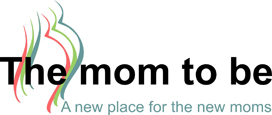|
The size of the breasts is not directly related with amount of milk that it can produce.The tiny bumps on the aureole secrete a lubricant that keeps the tissue soft and bacteria-free. The breast is perfectly designed for feeding, and the milk production works as a supply-and-demand system. This means that the more you feed your baby, the more milk you will produce.
"Colostrum", is the name of the first milk that your body produces and it is a yellow, thick-ish fluid with the right combination of nutrients for the baby in his first days after he are born. This first milk also contains antibodies to protect the baby from infections. This substance is high in protein and easy to digest and is produced is small amounts to suit the baby's small stomach.
After some days you will start to produce mature milk, called "foremilk", and each time you nurse your baby it will start to get thinner and bluish. By this time it contains very little fat, and is rich in proteins and lactose which will satisfy your babies needs for now. Near the last days of the breastfeed time the milk will contain more fat and it will represent the baby's main source of energy. It is called the "hind milk" and keeps your baby satisfied until the next feeding.
The importance of breastfeeding to your baby
- Breast milk is easily digested so your baby will have less stomach upset and gas than babies that are feeded with formula.
- For the first six months of life he receives all the nutrients (fat, vitamins, minerals, protein and carbohydrates) that he needs to grow in a healthy way.
- He will be more protected from diseases like ear infections, respiratory illnesses or diarrhea.
- He will be provided with some protection against chronic diseases like ulcerative colitis, insulin dependent diabetes, asthma or certain childhood forms of lymphoma and leukemia.
- Breastfeeding may also provide some protection against Sudden Infant Death Syndrome.
- Your baby will be protected from a variety of illnesses because he will receive antibodies from you.
How many times should you breastfeed ?
Breastfeed any time your baby seems hungry. You do not need to wait for crying. Babies often need to nurse 8 to 12 times each day for the first week or two. If your baby is very sleepy, you will need to wake them up at least every 4 hours to nurse.
How long should you breastfeed?
Each mother will decide how long to breastfeed. But it is advisable to:
● Moms who don't have health problems
should give their baby only breast milk for the baby’s first six months of life.
● Moms should try to breastfeed for the first 12 months of life because it’s good for both mother and baby.
Try these other tips:
● Feed your baby whenever he or she is hungry. This is called feeding on demand.
● Make sure your baby nurses on each breast each time he or she feeds.
● Release or express a little milk if your breast feels too full for the baby to latch on. Gently squeeze the aureole – the darkish area around
your nipple.
● Take a hot shower or put on a heating pad before feeding to help you release your milk.
|

